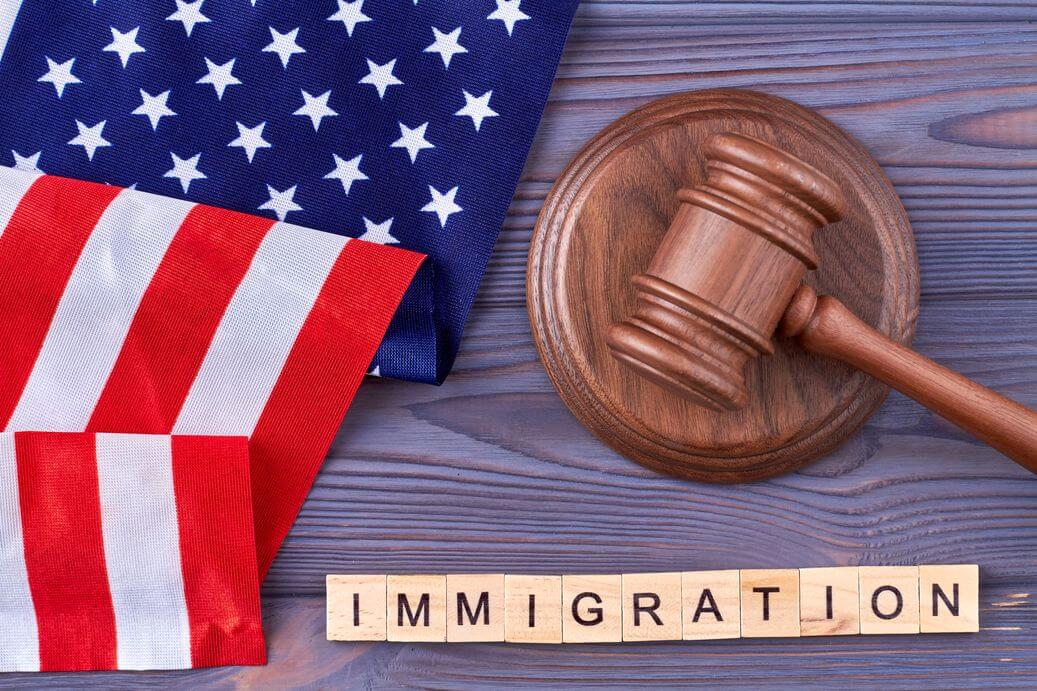
Your application to an American university or college has been accepted. Congratulations! You’ve prepared your documents and other requirements, and you’re getting more and more ready for your F-1 student visa interview. However, you wonder, “How can I answer the questions so that nothing goes wrong?”
A student applying for an F-1 student visa cannot take shortcuts to passing the visa interview. Similarly, to your U.S. university application and other visa application parts, a successful U.S. visa interview requires preparation. Before the interview, prepare by practicing your answers to the questions.
It is important to keep in mind that being fluent in Spoken English, specifically having a good grasp on correct American English pronunciation, will help you convey your ideas and answers, and make a good impression on your interviewers. If you think that you have to put more time into your spoken English, you may try an intensive English-speaking course, with feedback, and coaching to get the best results in little to no time.
The purpose of this article is to give you an overview of things that the consular officers may ask you during your F1 Visa Interview. Note that the interview questions may vary. This article is not a blueprint, but rather a guide to help you familiarize yourself with common interview questions and how best to prepare for them.
During an F-1 visa interview, you’ll likely be asked about the most common questions presented at your embassy or consulate. Click here to learn more about student visas at the U.S. Department of State’s website.

During the U.S. F-1 visa interview, you will be asked to explain why you will be traveling to the U.S. and prove that you are a legitimate student. You may also be asked about your reasons for attending college or a university in the U.S. Be prepared to answer these questions directly for your interviewer. Before your interview, you should practice some questions about American student visas to ensure that you are well prepared.
Generally, most U.S. F-1 visa interview questions fall under five categories:
The following are examples of F-1 student visa interview questions and answers for each category.
What you plan to study in the US, why you chose the U.S. to attend a university, and more, will be of interest to the interviewer. Your interviewers may ask questions similar to those asked on your university applications.
We’ve put together a list of possible U.S. study plan interview questions for your F-1 visa.
Q: What is your intent on studying in the US?
Why did you decide to study in the U.S.? Tell your interviewer why. In this case, you would focus on how the U.S. has some of the world’s best universities and most international students choose to study there. In addition to offering support for international students, top-ranked programs, a flexible education system, and cultural diversity, universities in the U.S. provide a host of other benefits. You can also point out that the U.S. has a welcoming community where you can connect with international students from all over the world and English is widely spoken in the United States; consequently, you can improve your communication skills there.
In addition, it is worthwhile to draw attention to any special circumstances, such as not being able to pursue the degree in your home country.
Q: Can you not continue your education in your home country?
Discuss the quality of education in your country compared to that in the United States with this visa interview question. You might let the interviewer know that pursuing a degree from a world-class academic institution in the U.S. is one of your life goals. It may also be relevant for you to discuss how the field of study you are interested in isn’t available in your country. Further, you can compare how course structures, facilities, and faculty differ between U.S. universities and universities in your home country.
Q: What will be your major?
Explain, to the interviewer, which field of study you wish to major in. Consider, for example, how you could make an impact in health care and education with technology if you are planning to major in computer science. Explore how the business degree can lead to a high-paying career if you’re interested in majoring in business.
Q: Have you visited the U.S. before?
In case you have visited the U.S. previously, tell the visa officer the reason for your trip, such as a vacation, to attend a conference, or for health reasons. However, simply state that you haven’t yet had a chance to travel or study in the U.S. if you haven’t been there before.
A visa officer will ask you about your university preferences in the U.S. during your F-1 visa interview in order to get a sense of your academic abilities and why you chose the university you intend to attend. The chances of an international student getting an F-1 student visa are better if they are accepted by high-ranked universities.
These are some interview questions for the U.S. F-1 visa that ask why you chose the university you want to attend.
Q: What made you decide to choose this university?
Make the interviewer aware that you have done your homework on the university and explain why you think it is the best choice for your major. You should demonstrate how this program will benefit you, your future, and your career prospects. A prominent figure who was an alumnus of the university you plan to attend can be highlighted, for example.
Q: How many other universities did you apply to?
It is possible, but not likely, that all the universities you applied to accepted you. So, tell your visa officer the truth and don’t sugarcoat anything. Tell the truth if, for example, only one U.S. university accepted your application out of six. Your honesty will be appreciated by the visa officer.
Q: What city is your school in?
If you know the city or town where the institution is located, you can simply respond with that. In addition, you can mention a couple of facts about the location. Your interviewer will be impressed that you have done extensive research!

The interviewer may still want to know whether you will be able to succeed in your studies in the U.S. even if you have already been accepted to a U.S. college or university. Test scores, English proficiency levels, and/or high school transcripts might also be requested. These factors will provide them with insight as to whether you will be able to do well as a student at the institution you wish to attend.
The following are questions and answers on your academic background and achievements that you may encounter during your F-1 student visa interview.
Q: What is your standardized test score?
Disclose the results of any tests you have taken, including English proficiency tests such as TOEFL or IELTS as well as any standardized tests you have taken (e.g., GRE, GMAT, ACT, SAT).
Q: Are you fluent in English?
Toefl and IELTS measure your ability in speaking, writing, reading, and understanding English. Regardless of the fact that your application has been accepted by the university, you can mention your TOEFL and IELTS scores in your interview to show your commitment and dedication to improving your English. You can tell the visa officer that as a member of the international students’ community in the US, you look forward to improving your English-speaking skills.
Q: Would you mind sharing your high school transcripts?
Make sure you have all of your documents ready for your visa interview, including your high school transcripts, passport, DS-160 confirmation page, F-1 application payment receipt, visa photo (make sure your photo meets all requirements), and I-20 from the college or university where you have been accepted. Therefore, you can simply hand your interviewer the document when he or she requests it.
A student visa for the United States requires proof of financial stability. As an international student in the U.S., you will need to prove that you have the funds to pay for your education and live in the US. Among the expenses in your financial plan should be tuition fees, accommodation, dining, health insurance, and transportation costs. Generally, a visa officer will ask about your relationship to a sponsor if they’re helping you with your expenses.
Check out these questions about your financial stability that the visa interviewer may ask.
Q: How do you plan to pay for your education?
You should talk about how much your fees and tuition are, and how you plan on covering them while attending the university. Be careful not to mention your potential earnings in the U.S! You can tell the visa officer that you will be more likely to get hired in your home country if you have a degree from a U.S. college or university.
Q: Who is your sponsor?
Describe all the details of your scholarship to study in the U.S. to your interviewer if you have received one. Make sure you mention your parents’ names if they are sponsoring you; if someone else is sponsoring you, state their name and your relationship with them.
Q. How does your sponsor earn a living?
Your sponsor’s finances and their ability to fund your higher education in the U.S. are important considerations for the visa officer. Before attending the interview, be sure to familiarize yourself with the sponsor’s profession and income source. Describe clearly the nature of their work and whether or not they are committed to funding your education.
Q: Will you be working during your studies in the US?
If you are studying on an F-1 student visa, you will be able to work on campus for a maximum of 20 hours per week during the academic term and full-time during semester breaks. During your interview, you could mention that you intend to concentrate on your studies and work on campus if you find an opportunity.
Even if you plan on working in the U.S. after graduation, it is important to indicate that you wish to return to your home country after you graduate. You should discuss why you wish to return home after graduation with your visa officer.
Here are a few questions you could be asked after graduation about your plans.
Q: Are you planning to return to your home country once you finish your studies?
If you wish to return to your home country, remember to mention that you have ties there, including relationships with family, friends, business, and property. You must be able to convince the visa officer that you have strong reasons and motivation to return home after completing your studies.
Q: Are you related to anyone in the United States?
Answer honestly. Inform the interviewer about any relatives or immediate family members who reside in the United States. You may also mention friends living in the US.
Q: What career or job do you envision for yourself after graduation?
You will enter the U.S. as a non-immigrant as an international student on an F-1 visa. Tell the visa officer that you plan to return to your home country as soon as you graduate and will not remain in the U.S. after graduating. Include what your plans will be after returning home.

On USCIS.gov, you can find out more about the F-1 student visa interview. To learn more about traveling to the United States on a F-1 visa, please visit Travel.state.gov.
More than 1 million foreign students study in the US, and they all had to go through visa interviews just like you. During your interview, make sure you have your materials organized and ready to go. Remain calm during the interview, and practice answering the student visa questions in your own words.